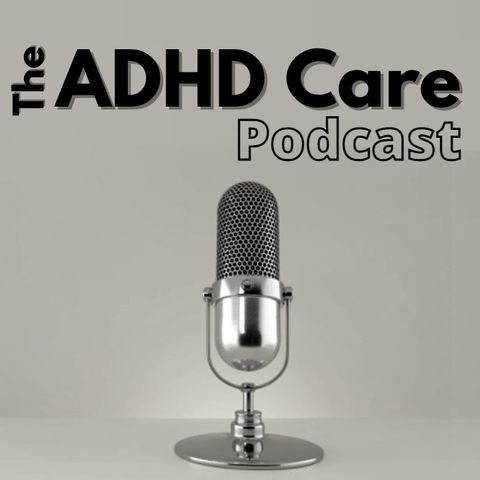Episode 33 - ADHD and Rejection Sensitivity Dysphoria with Kathryn Wheatman

Jul 6, 2023 ·
49m 4s
On this episode Archie is joined by Kathryn Wheatman, ADHD Coach to discuss about Rejection Sensitivity Dysphoria (RSD). RSD is when you experience severe emotional pain because of a failure...
show more
On this episode Archie is joined by Kathryn Wheatman, ADHD Coach to discuss about Rejection Sensitivity Dysphoria (RSD). RSD is when you experience severe emotional pain because of a failure or feeling rejected. This condition is linked to ADHD and experts suspect it happens due to differences in brain structure.
Rejection sensitivity is a common issue for neurodiverse people. The fear of rejection can lead to social anxiety and isolation. It can also make it difficult to pursue goals and maintain relationships.
An ADHD coach can provide valuable support and strategies for managing rejection sensitivity dysphoria (RSD). Here are some ways in which an ADHD coach can help:
1. Educating about RSD: An ADHD coach can explain what RSD is and help the individual understand that their intense emotional reactions to perceived rejection are a symptom of their ADHD. This can help normalize their experiences and reduce self-blame or shame.
2. Developing self-awareness: The coach can work with the individual to increase their self-awareness and identify triggers or situations that typically lead to RSD episodes. By recognizing these patterns, the individual can better prepare themselves and develop coping strategies.
3. Coping strategies: An ADHD coach can help the person develop a toolkit of coping strategies to manage RSD. This may include techniques such as mindfulness, deep breathing exercises, or cognitive reframing to challenge negative thoughts and interpretations.
4. Building self-esteem: RSD often leads to decreased self-esteem and self-worth. A coach can help the individual work on building a positive self-image, focusing on their strengths, and celebrating their achievements, which can help mitigate the impact of perceived rejection.
5. Communication skills: The coach can assist in improving communication skills, such as assertiveness and effective expression of emotions. Learning how to communicate needs and concerns in a constructive manner can help reduce misunderstandings and potential triggers for RSD.
6. Goal setting and planning: An ADHD coach can assist the individual in setting realistic goals and creating actionable plans. By breaking down bigger tasks into smaller, manageable steps, the individual can experience a sense of accomplishment and reduce the likelihood of feeling overwhelmed or rejected.
7. Creating a support network: The coach can help the person develop a support network of friends, family, or peers who understand and can provide emotional support during challenging times. Additionally, the coach can help individuals connect with ADHD support groups or communities where they can share experiences and learn from others.
It is important to note that an ADHD coach is not a mental health professional and cannot provide therapy. However, they can offer guidance, support, and practical tools to help individuals with ADHD, including those struggling with rejection sensitivity dysphoria.
If you wish to find out more about Kathryn or access her coaching services please visit:
www.adhdcare.co.uk or email us on info@adhdcare.co.uk
show less
Rejection sensitivity is a common issue for neurodiverse people. The fear of rejection can lead to social anxiety and isolation. It can also make it difficult to pursue goals and maintain relationships.
An ADHD coach can provide valuable support and strategies for managing rejection sensitivity dysphoria (RSD). Here are some ways in which an ADHD coach can help:
1. Educating about RSD: An ADHD coach can explain what RSD is and help the individual understand that their intense emotional reactions to perceived rejection are a symptom of their ADHD. This can help normalize their experiences and reduce self-blame or shame.
2. Developing self-awareness: The coach can work with the individual to increase their self-awareness and identify triggers or situations that typically lead to RSD episodes. By recognizing these patterns, the individual can better prepare themselves and develop coping strategies.
3. Coping strategies: An ADHD coach can help the person develop a toolkit of coping strategies to manage RSD. This may include techniques such as mindfulness, deep breathing exercises, or cognitive reframing to challenge negative thoughts and interpretations.
4. Building self-esteem: RSD often leads to decreased self-esteem and self-worth. A coach can help the individual work on building a positive self-image, focusing on their strengths, and celebrating their achievements, which can help mitigate the impact of perceived rejection.
5. Communication skills: The coach can assist in improving communication skills, such as assertiveness and effective expression of emotions. Learning how to communicate needs and concerns in a constructive manner can help reduce misunderstandings and potential triggers for RSD.
6. Goal setting and planning: An ADHD coach can assist the individual in setting realistic goals and creating actionable plans. By breaking down bigger tasks into smaller, manageable steps, the individual can experience a sense of accomplishment and reduce the likelihood of feeling overwhelmed or rejected.
7. Creating a support network: The coach can help the person develop a support network of friends, family, or peers who understand and can provide emotional support during challenging times. Additionally, the coach can help individuals connect with ADHD support groups or communities where they can share experiences and learn from others.
It is important to note that an ADHD coach is not a mental health professional and cannot provide therapy. However, they can offer guidance, support, and practical tools to help individuals with ADHD, including those struggling with rejection sensitivity dysphoria.
If you wish to find out more about Kathryn or access her coaching services please visit:
www.adhdcare.co.uk or email us on info@adhdcare.co.uk
Information
| Author | ADHD Care |
| Website | - |
| Tags |
Copyright 2024 - Spreaker Inc. an iHeartMedia Company
